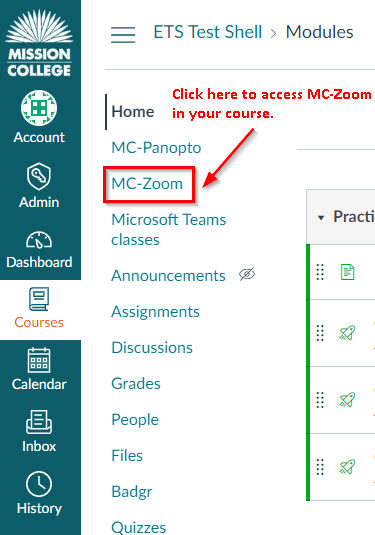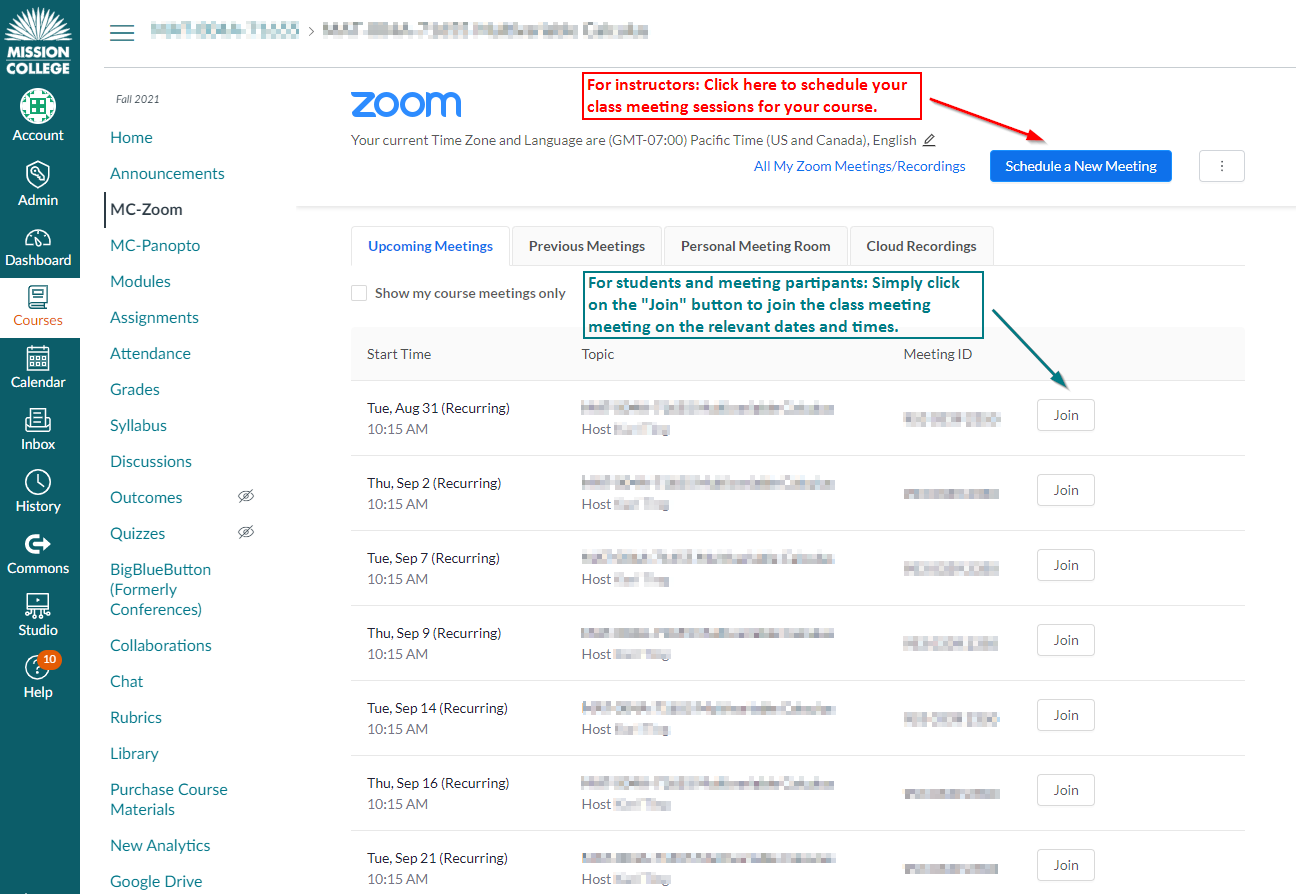MC-Zoom
Campus Video Conferencing Tool
MC-Zoom is the Mission College supported and funded video conferencing platform. MC-Zoom allows for easy facilitation of online meetings, courses, lectures and presentations. MC-Zoom is enabled as a default and universal tool inside of Mission College's Canvas environment for seamless and easy access. Users can also access MC-Zoom outside of Canvas at https://missioncollege-edu.zoom.us/.
All faculty and staff at Mission College can use MC-Zoom free-of-charge. The tool is administered by the department of Educational Technology Services (ETS). If you do not have access to MC-Zoom or wish to migrate your existing Zoom accounts to MC-Zoom, simply submit a ticket to us at https://support.missioncollege.edu/.
Current Mission College (MC) students, faculty, and staff may create recordings to share them with college audiences. Cloud video recordings will be retained on MC-Zoom for 30 days. Afterwards, they will be deleted to preserve storage. Please note that all MC-Zoom cloud recordings are automatically transferred to MC-Panopto (Mission College's Lecture Capture Tool and Video Content Management System), for permanent storage.
As MC-Zoom users, all cloud recordings generated from meetings scheduled within your Canvas course shell will be automatically filed in the course folder at the end of each session. You can simply refer your students to navigate to MC-Panopto in the Canvas course shell to access all course lectures and videos.
MC-Zoom is meant to be used for educational purposes only. Use outside of these general guidelines may need additional consideration.
Accessing MC-Zoom Inside of Mission College's Canvas Environment
Navigate to your Canvas course shell:

This is MC-Zoom interface inside of your Canvas source shell:

FERPA Considerations When Using MC-Zoom's Recording Feature
Mission College provides access to MC-Zoom to enable faculty and staff to facilitate online meetings, lectures and presentations. MC-Zoom has a recording feature that requires additional consideration. The Family Educational Rights and Privacy Act (FERPA) limits access to student educational records—including these recordings.
FERPA prohibits disclosure of personally identifiable student records without a student’s written consent. A student may be able to be identified through video, audio, or other means.
If your recordings are available to a broader audience than just the course section originally being recorded, and if students are personally identifiable in the recording, FERPA requires written student consent to that disclosure.
In any case, you should inform your students that the course is being recorded, and will be available for later playback to students taking the course.
Support and Resources
On-Campus Technical Inquiries and Support
Please submit tickets to ETS at: https://support.missioncollege.edu/
Zoom's Help Center:
Main support site: https://support.zoom.us/

